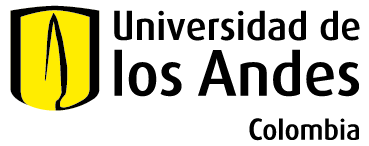Homology-based microbiome analysis
using DIAMOND+MEGAN
General Information
Date: August 2nd, 8:00 - 12:15 h GTM-5.
Language: English
Participants: Limited to 45 participants. Applicants will be selected based on demonstration of the need.
Registration fee: USD 15
Deadline for applications: June 30th
Version: Online
Introduction
Microbiome science explores microbial communities in the context of health, the environment and biotechnology. Reads are collected using both short- and long-read sequencing technologies, optionally assembled, and then subjected to taxonomic and functional analysis. A detailed analysis can be obtained by first aligning all sequences against the NCBI-nr protein database using DIAMOND and then performing taxonomic and functional binning using MEGAN.
This workshop aims at giving an introduction to the computational analysis of microbiome sequencing reads. We briefly first discuss quality control, processing and sequence assembly. We will then discuss in more detail how to perform DIAMOND alignment of the data and how to process the resulting alignment files so as to be able to open them in MEGAN. We will then use MEGAN to explore a number of different microbiome datasets from different host-associated studies, and from bio-reactor communities. We will consider both short-read and long-read datasets. DIAMOND is a command line tool that is run on a server. MEGAN is an interactive microbiome exploration tool that is run on a laptop or desktop.
The DIAMOND+MEGAN pipeline is the archetype of homology-based microbiome analysis and so obtaining an understanding of this approach will also prepare you to work with other microbiome analysis tools that follow this approach.
Who is this course for?
All people interested in gaining experience on metagenome analysis using MEGAN.What resources do you need?
- A basic computational knowledge.
- A reasonably good laptop or desktop.
- Install latest version of MEGAN on your computer.
- Some experience in usin metagenomics software is desired.
- Need to be familiar with Linux to run Diamond.
What will you achieve?
At the end of this course, participants should be able to do an initial analysis of shotgun metagenome datasets using MEGAN.Programme
08:00 - 08:15 am Introduction and Welcome08:15 - 09:15 am Pre-recorded talk
09:15 - 09:30 am Q&A
09:30 - 09:45 am Short break
09:45 - 11:45 am Hands on session (3-4 break out rooms)
11:45 - 12:15 am Wrap up the plenary and discussion
Hours shown in GTM-5 schedule
Note:
- If you are selected to attend this course, you will be informed on July 10th, to the email address provided.
If you have any questions about this course, send us an email at:
Register for this course Here
Instructor

Daniel Huson Ph.D.
@HusonDanielhttps://github.com/husonlab
https://scholar.google.com/citations?user=hLTZTG4AAAAJ
https://currentprotocols.onlinelibrary.wiley.com/doi/10.1002/cpz1.59
Daniel H. Huson is Professor of Algorithms in Bioinformatics at Tübingen University. He is the international leader fellowship of the Royal Society of New Zealand. He is the main author of the widely used computer programs MEGAN, Diamond, Dendroscope, and SplitsTree. Also is a cofounder Computomics GmbH and CeMeT GmbH. His research is focused on the development and application of new methods in computational biology, in particular for microbiome analysis, but also for genomics and phylogenetics.






